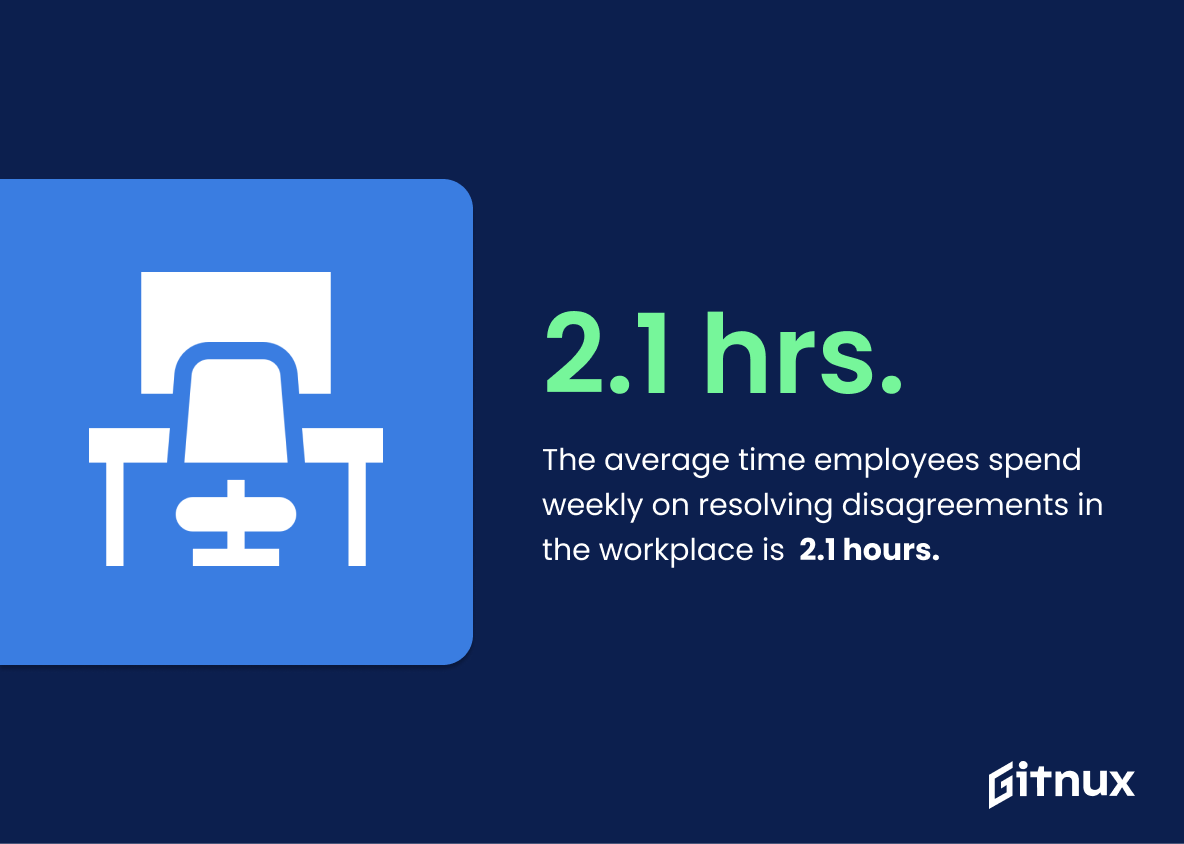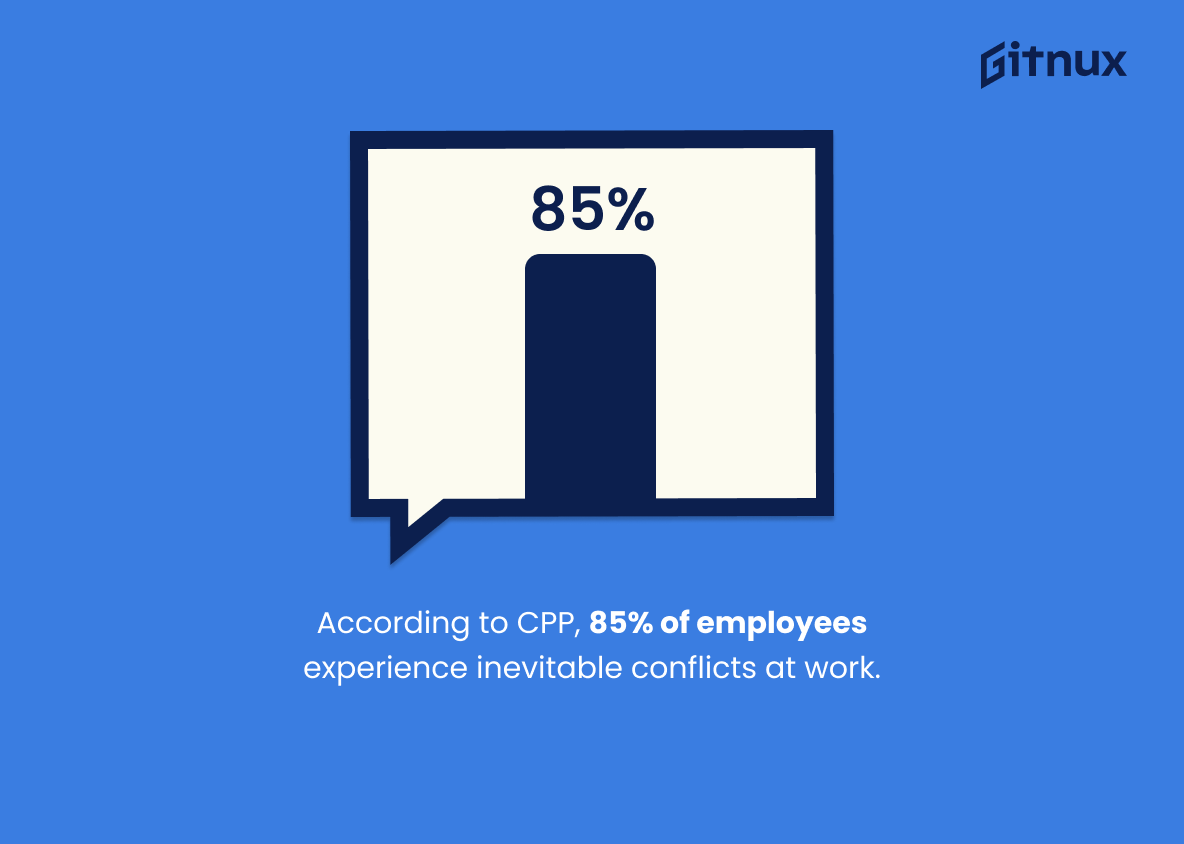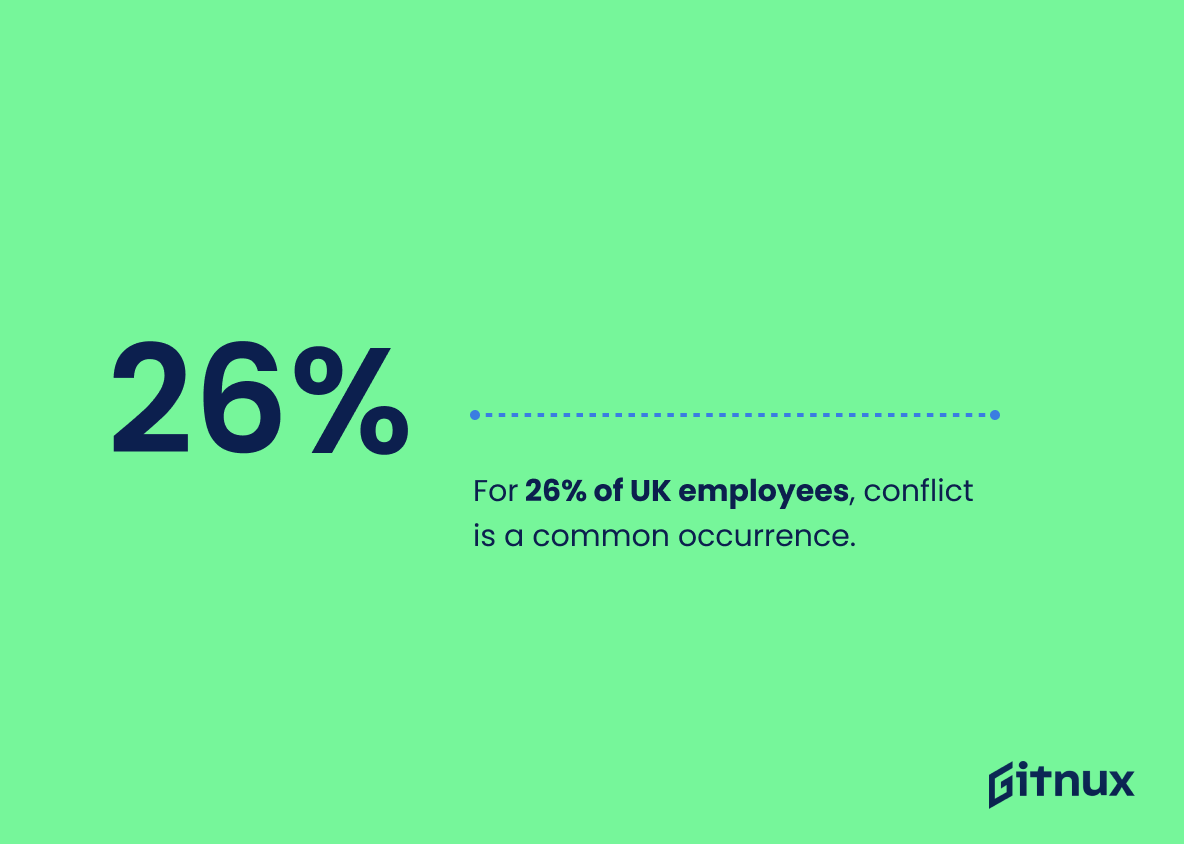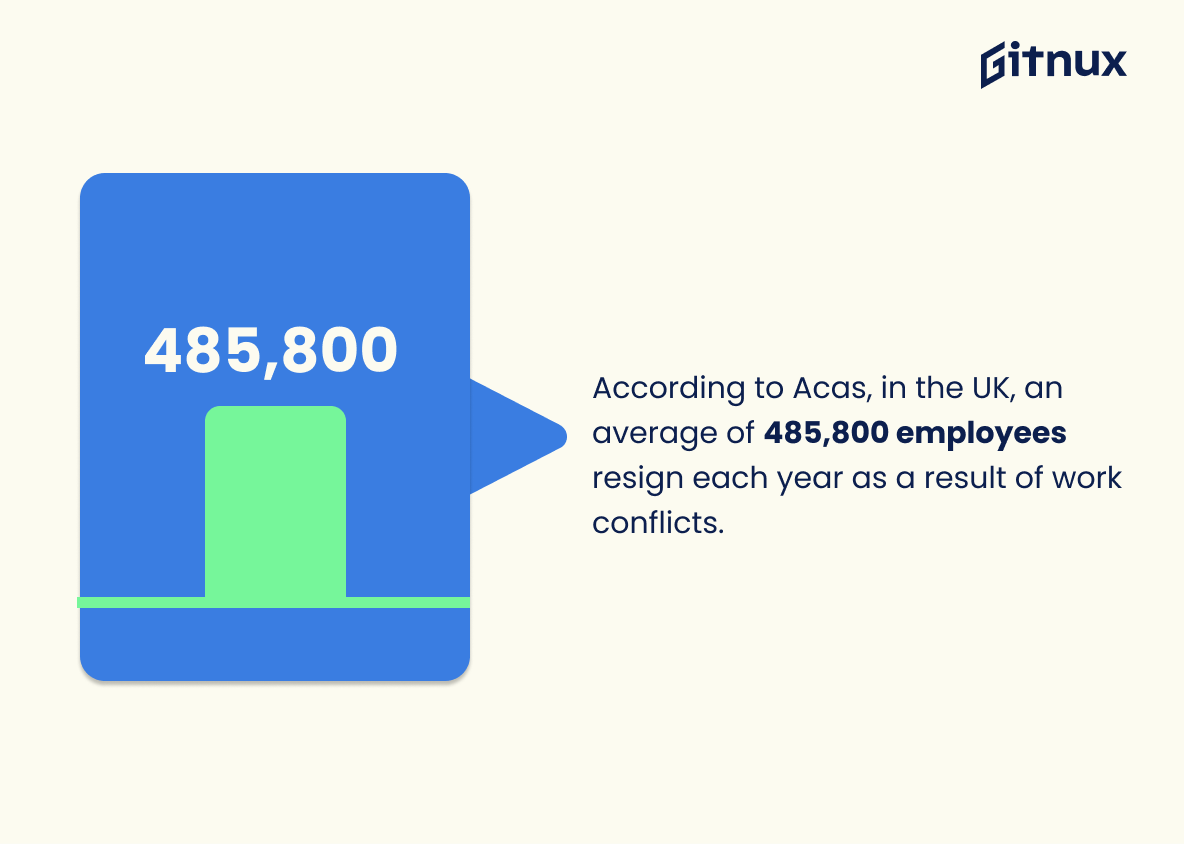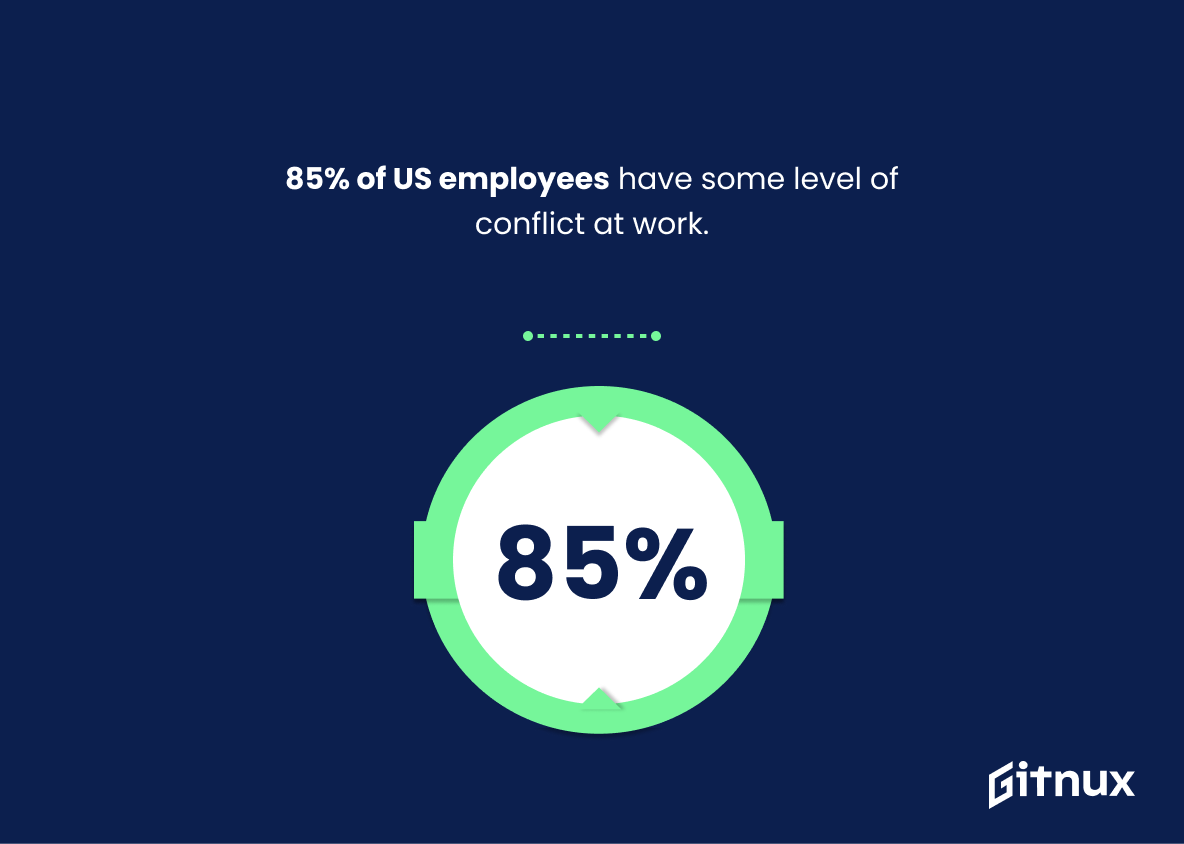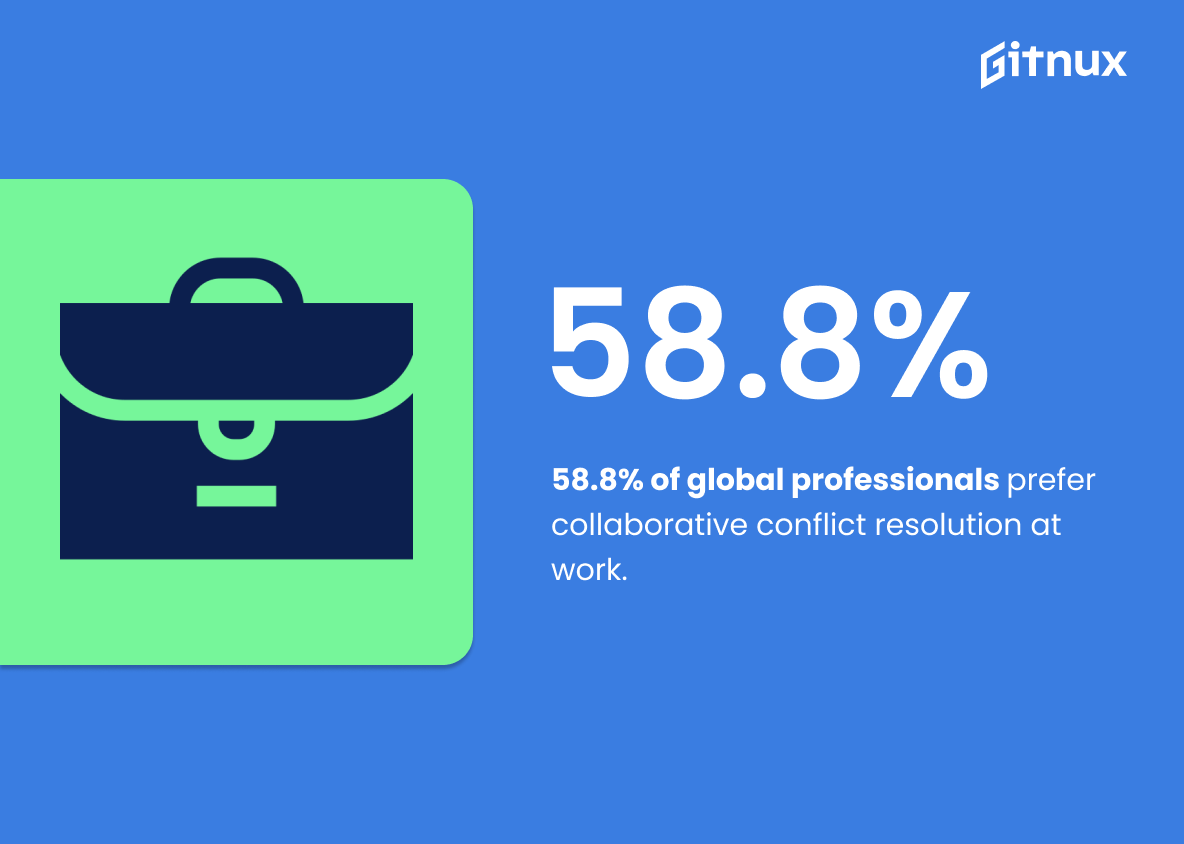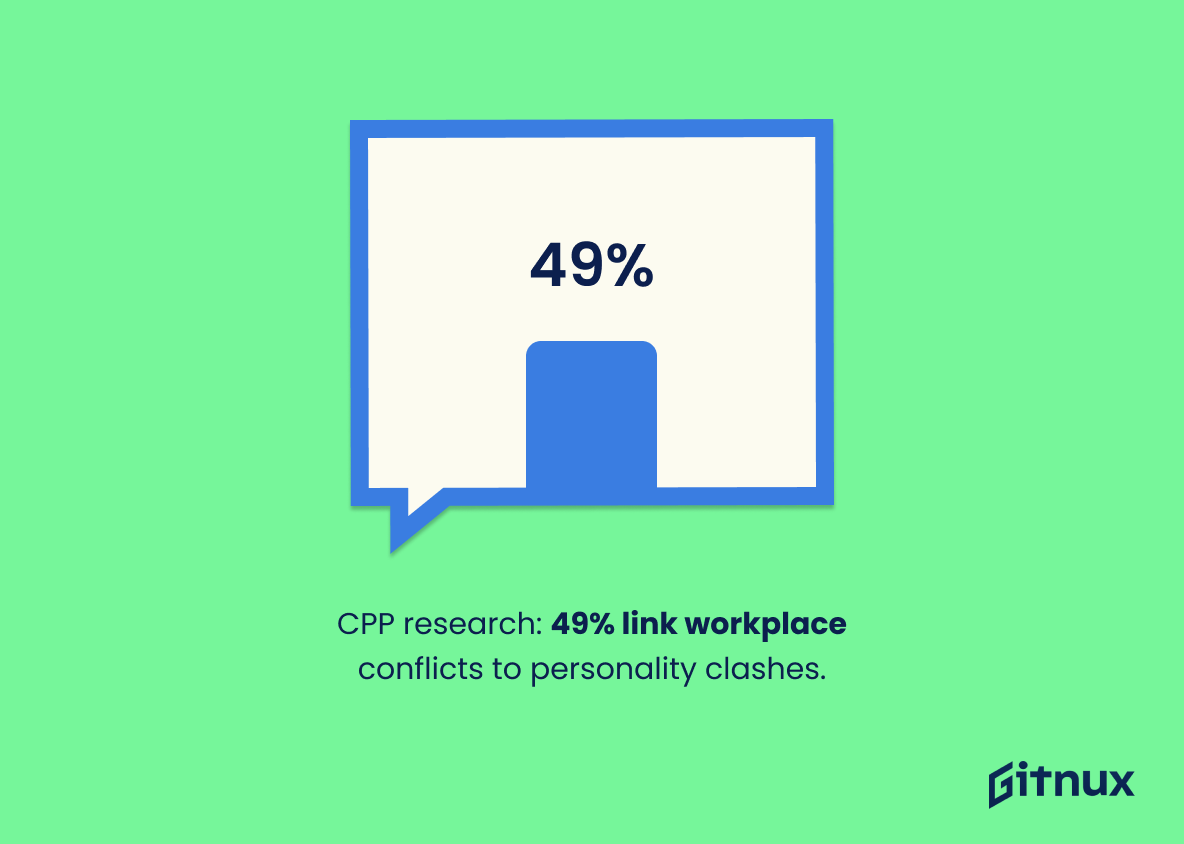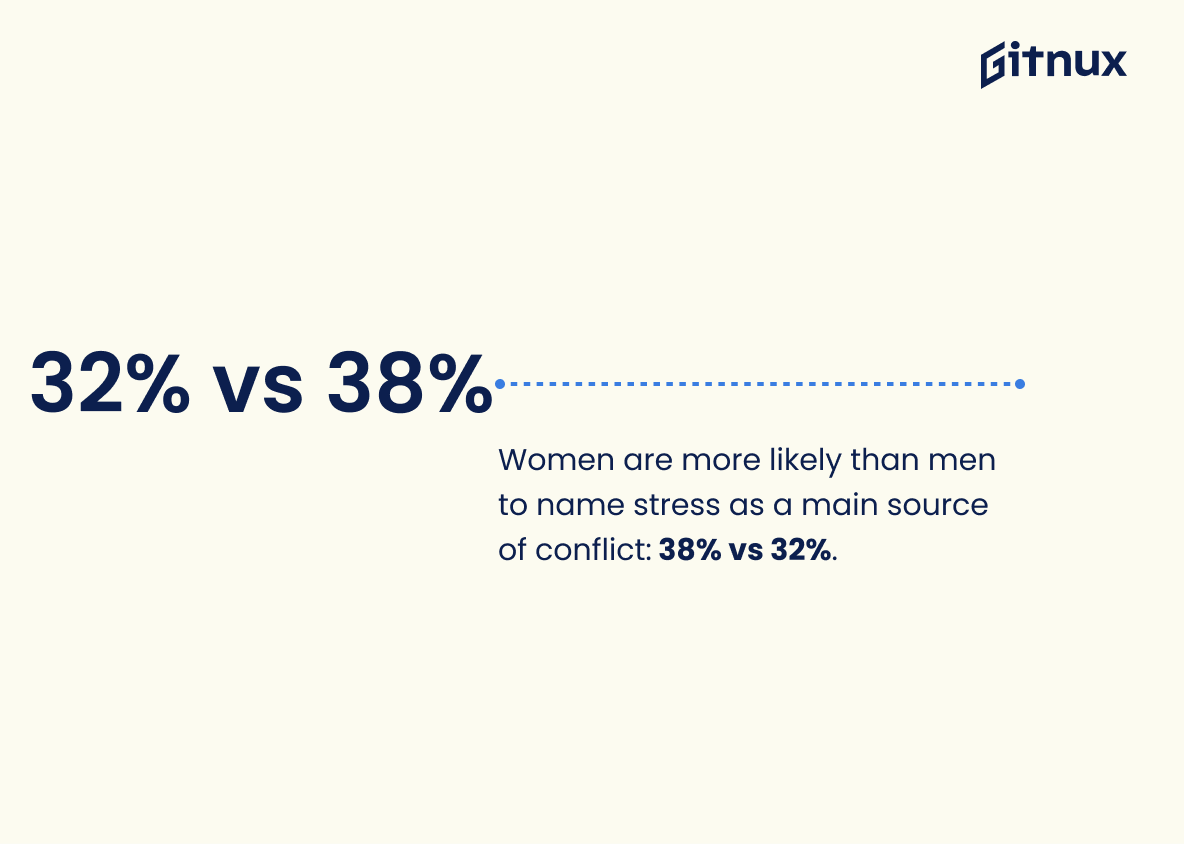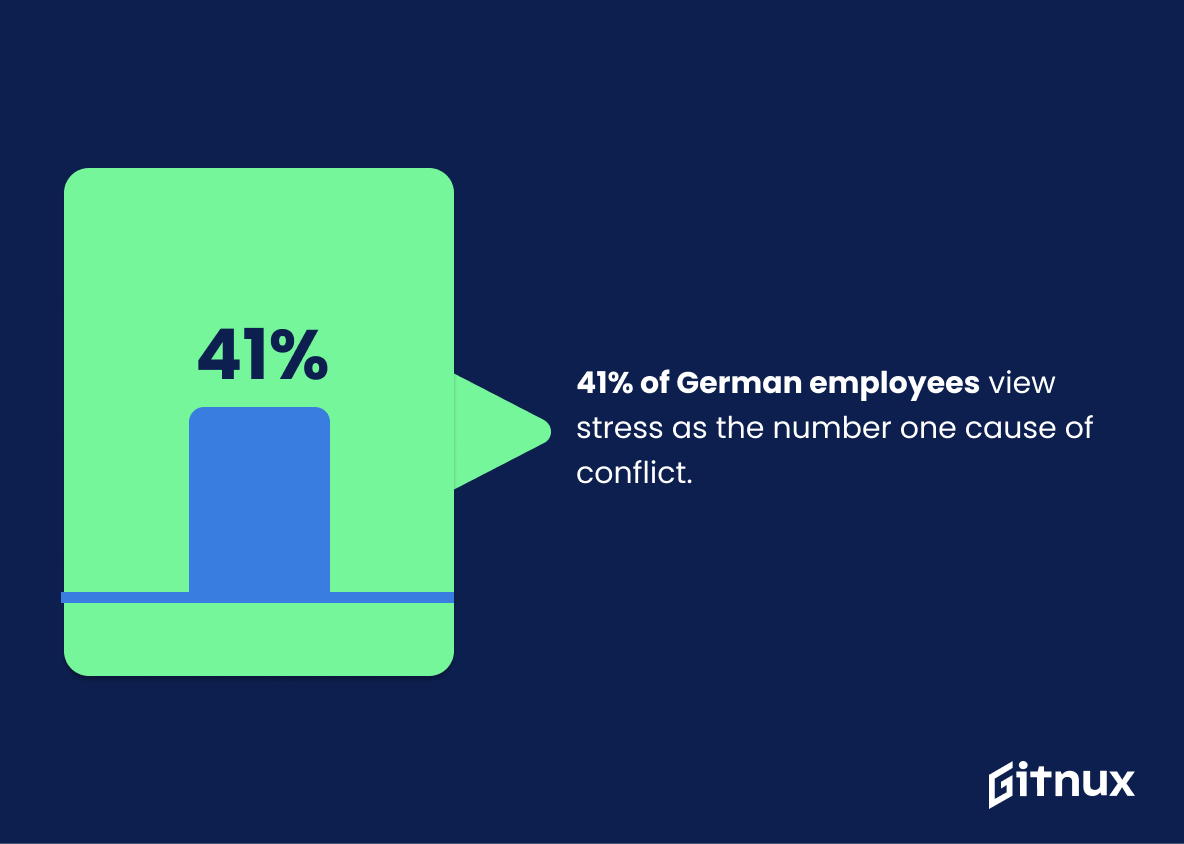Conflicts occur in every organization, no matter its size, industry, or location. They are an inevitable part of our work lives, and we all know well enough how unpleasant they can be. Many people are afraid of workplace conflicts and try to avoid them at any cost. Even if it means depriving themselves of social lives, keeping away from meetings with colleagues, or cutting down new career opportunities.
Conflict situations at work can cause anxiety and depression among workers. Many employees don’t see a better way to change the situation, but simply quit. But despite numerous negative outcomes, workplace conflicts can also result in something more positive and actually benefit the parties involved in them.
We believe this article will be helpful to you no matter your occupation, as conflict situations happen in any team. Understanding the nature of workplace conflicts, their causes, and the challenges they bring to you and your team is the first step towards stronger and more understanding team collaboration. So let’s look at the latest workplace conflict statistics together!
Workplace Conflict: The Most Important Statistics
- Globally, the average time employees spend weekly on resolving disagreements in the workplace is 2.1 hours. In the US, it rises to 2.8 hours per week.
- 85% of US employees have some level of conflict at work. Managers spend around 6 hours per week (roughly 15% of their time) solving work conflicts.
- 56% of employees who experienced conflict at work reported that it led them to stress, anxiety and/or depression. 40% reported being less motivated.
General statistics on workplace conflict
Globally, the average time employees spend weekly on resolving disagreements in the workplace is 2.1 hours. In the US, it rises to 2.8 hours per week. This amounts to around 359 billion USD in hours paid that are filled with and focused on conflict instead of on positive productivity.
According to CPP, 85% of employees experience inevitable conflicts at work. 29% of employees said, that they have to deal with conflict almost constantly.
For 26% of UK employees, conflict is a common occurrence. And 24% of those workers believe that issues relating to harassment and bullying were not being resolved well in their organizations.
According to Acas, in the UK, an average of 485,800 employees resign each year as a result of work conflicts. 874,000 employees are estimated to take sickness absence each year as a result of conflict, at an estimated cost to their organizations of £2.2 billion.
85% of US employees have some level of conflict at work. Managers spend around 6 hours per week (roughly 15% of their time) solving work conflicts.
58.8% of professionals around the world prefer to use collaborating conflict management style when resolving workplace conflicts. 24.4% of survey respondents prefer a compromising style. Competing, avoiding and accommodating conflict styles are not that widely used by managers.
What triggers conflict at work?
While there is an endless list of possible causes for workplace conflict, some of them are accruing more often than others. According to CPP research, 49% of all employees see clashes between personalities or egos as the leading cause of workplace conflicts. 34% of workers agree that workplace stress is another common cause of conflict. 33% find heavy workload without enough support the main conflict trigger. Poor leadership (29% of respondents), dishonesty (26%) and problems with line managers (23%) regularly cause conflicts at work too.
Women are more likely than men to name stress as a main source of conflict: 38% vs 32%.
Culture also plays a part in the perception of causes. Brazilian workers are more likely to see a clash of values as a major cause of conflict (30%), while in the US only 17% of employees agree with it. Conversely, workers in Germany are the only ones not to rank warring egos at the top of the list. 41% of German employees view stress as the number one cause of conflict. In France, 36% of employees see a lack of honesty as a key factor.
The cost of workplace conflicts
A new survey by Randstad US revealed, that 58% of US workers have quit (or considering it) because of disruptive workplace politics. 38% want to quit because of poor workplace culture or a feeling that they don’t fit in. The overwhelming majority (86%) of jobseekers avoid applying to companies that have been reviewed poorly by their workforce.
According to CPP, 89% of employees let their conflicts with coworkers escalate, while 12% quit their job, another 10% of workers avoid going to meetings and 9% don’t come to work for multiple days.
27% of survey respondents have witnessed conflict transform into a personal attack, while 25% said that the avoidance of conflict resulted in sickness or absence from work.
The same research states that women struggle most to cope with the emotional debris of conflict. Nearly two-thirds (64%) emerge from a conflict with negative emotions, as opposed to less than half (48%) of men. Women are also twice as likely as men to feel sick with nervousness or insomnia as a result of workplace conflict.
EEOC informs, that US companies have around a 12% chance of being sued by their employees. The average time for the resolution of these kinds of lawsuits is 275 days, and the average cost of conflict in the workplace amounted to 125,000 USD. In 81% of the cases, the insurer would refuse to cover the legal costs.
In 2021, there were 61,331 workplace discrimination charges in the US, which resulted in more than 34 million USD in damages for victims in federal court.
In the UK, the estimated annual cost of conflict to organizations is 28.5 billion GBR. This represents an average of over 1,000 GBR for every employee and under 3,000 GBR for each individual involved in conflict annually.
Almost 10 million people in the UK experienced conflict at work. Over half of them suffer stress, anxiety, or depression as a result. Just under 900,000 took time off work, nearly 500,000 resigned, and more than 300,000 employees were dismissed.
According to a Statista study, 30% of employees believe that having a work enemy makes them perform worse at jobs.
Statistics show that one-third of the workers involved in a conflict stated that it led to personal injury. 22% of those participating in a heated workplace argument took days off work due to an injury caused by the dispute.
Around 10% of American workers report a failure of a work project because of a conflict.
56% of employees who experienced conflict at work reported that it led them to stress, anxiety and/or depression. 40% reported being less motivated.
Positive outcomes of work conflict
It’s quite surprising, but workplace conflicts can also have a positive impact on relationships between employees, their choices, and solutions, as well as benefit the organization as a whole.
Positive outcomes, however, are directly tied to conflict management training. According to CPP, countries with a high incidence of training report high proportions of positive outcomes, while countries in which training is less prevalent report low proportions of positive outcomes.
Less than half (44%) of survey respondents have received training in how to manage workplace conflict. This figure rises to 57% in the US and 60% in Brazil. Moreover, 72% of Belgian workers and 73% of those in France have had none.
Over 95% of people receiving training as part of leadership development or on formal external courses say that it helped them in some way.
27% believe it made them more comfortable and confident in managing disputes, and 58% of those who have been trained say they now look for win-win outcomes from conflict.
76% of workers worldwide have seen a conflict lead to something positive. 41% of them found that it led to a better understanding of other people, 33% experienced improved working relationships, and 29% even found a better solution to their problem or challenge.
9% of employees say that conflict resulted in the birth of a major innovation. An additional 21% saw a higher performance in their team.
80.6% of respondents of the Niagara Institute survey say they are not afraid to have difficult conversations if it will move the disagreement towards a win-win solution. In addition, the survey showed that 67.3% of respondents are willing to keep the dialogue going, despite being a difficult conversation, until a resolution is reached.
Most people change the way they approach conflicts over time and the course of their working lives, and become more proactive and take it less personally. 31% of employees find that it “gets to them” less, while almost as many say that they are now more proactive in dealing with conflict than before. 85% of employees approach disagreements differently now compared with how they used to.
Supplementary Statistics
85% of employees at all levels experience workplace conflict.
It is an issue that affects the majority of employees regardless of their position. It highlights the need for employers to take proactive steps to address workplace conflict and create a more harmonious work environment.
25% of employees reported that conflicts led to a decrease in productivity.
When employees are in conflict, it can have a direct and measurable effect on the amount of work they are able to accomplish. This is an important statistic to consider when discussing the effects of workplace conflict, as it highlights the potential for decreased productivity due to unresolved conflicts.
43% of non-managers reported the origin of the conflict as being “personality clashes or warring egos”.
A significant portion of workplace conflicts is rooted in the personalities of those involved, rather than in external factors such as workload or resources. This highlights the importance of fostering a positive work environment and cultivating strong interpersonal relationships in order to reduce the likelihood of workplace conflict.
32% of employees claimed they lost work time due to work-related stress caused by conflicts.
Workplace conflicts can lead to a significant amount of lost work time, which can have a detrimental effect on productivity and morale. Workplace conflicts should be addressed and resolved as soon as possible in order to ensure that employees are able to work in a stress-free environment.
Over 27% of employees have witnessed workplace conflict escalate to personal insults.
There is an importance of having effective strategies in place to prevent and manage workplace conflict before it reaches a point of no return. It also serves as a warning to employers and employees alike that workplace conflict should not be taken lightly and should be addressed promptly and professionally.
Conflicted employees experience 22% lower performance than their non-conflicted counterparts.
This highlights the importance of addressing workplace conflict in order to ensure that employees are able to perform to their fullest potential. It also serves as a warning to employers that failing to address workplace conflict can have a significant impact on their bottom line.
33% of employees said they found it difficult to let go of workplace conflicts.
It highlights the need for employers to provide resources and support to help employees manage and resolve conflicts in the workplace. This statistic is a reminder that workplace conflicts can have a significant impact on employee morale and productivity, and should be addressed in a timely and effective manner.
29% of conflicts arise from the lack of clarity in job roles and responsibilities.
Without a clear understanding of what is expected of each employee, it can be difficult to avoid misunderstandings and disagreements that can lead to conflict. By ensuring that job roles and responsibilities are clearly outlined, employers can help to reduce the likelihood of workplace conflict.
Managers spend about 25%-40% of their time dealing with workplace conflict.
This highlights the importance of having effective strategies in place to address and resolve conflicts in the workplace, as it can take up a significant portion of a manager’s time.
60-80% of organizational difficulties stem from strained relationships among employees.
Workplace conflict can have a significant impact on the overall functioning of an organization, and that it is essential to prioritize building strong relationships between employees in order to ensure a productive and successful workplace.
57% of workers have been sought out by a coworker who wanted to discuss workplace conflict.
More than half of workers have experienced it firsthand. It is a stark reminder that workplace conflict is a common issue, and one that should not be taken lightly.
80% of employees experiencing unresolved conflict at work are disengaged from their jobs.
Unresolved conflict can have a significant effect on employee engagement, which can lead to decreased productivity, increased absenteeism, and higher turnover rates. This statistic is a reminder that employers should take steps to address workplace conflict in order to ensure that their employees remain engaged and productive.
45% of employees said they prefer to avoid rather than confront workplace conflicts.
Many employees are not comfortable with addressing issues head-on, and instead opt to avoid them altogether. This could lead to a lack of resolution and an overall decrease in workplace morale. As such, this statistic is an important reminder of the need for employers to create an environment where employees feel comfortable and empowered to address conflicts in a constructive manner.
50% of employees believe that a diverse working environment can lead to conflicts.
Half of the employees are aware of the potential for tension and disagreement that can arise when different backgrounds and perspectives come together. This statistic is an important reminder that employers should be mindful of the potential for conflict in a diverse workplace and take steps to ensure that all employees feel respected and valued.
60% of conflicts at work are resolved after intervention by management.
This highlights the importance of having a strong management team in place to help mediate and resolve any issues that may arise between employees. This statistic is also a reminder that workplace conflicts can be managed and resolved in a timely manner, which can help to maintain a healthy and productive work environment.
Conclusion
Workplace conflicts have high costs, both financial and mental. While employees struggle with stress and anxiety, start avoiding social events and colleagues and, as a result, feel underappreciated and miserable, companies lose money due to decreased productivity. Managers spend a lot of time, solving conflicts between employees, employees take sick leaves just to avoid their opponents, and all this results in lost productivity.
Companies should be able to provide workplace conflict management training for their teams, as it has proven to be the main factor for high-quality outcomes from conflicts. When people understand the nature of conflict, they can discuss it and turn their arguments into innovations and better work approaches.
References:
CPP: “Workplace conflict and how businesses can harness it to thrive”, cited in January 2023 (Source)
ESH Today: “New Study Details Effects of Workplace Conflict on Businesses”, cited in January 2023 (Source)
CMOE: “Workplace Conflict: Statistics That Reveal Its Cost”, cited in January 2023 (Source)
Acas: “Independent research Estimating the costs of workplace conflict”, cited in January 2023 (Source)
Toner Buzz: “Hard To Believe Workplace Stress Statistics (US & Global)”, cited in January 2023 (Source)
Niagara Institute: “Workplace conflict statistics: how we approach conflict at work”, cited in January 2023 (Source)
Health Careers: “33 Revealing Workplace Statistics for Success-Seekers”, cited in January 2023 (Source)
Statista: “How does having a work enemy affect your performance at work?”, cited in January 2023 (Source)
EHS Today: “New Study Details Effects of Workplace Conflict on Businesses”, cited in January 2023 (Source)
ZipDo, cited June 2023: Workplace Conflict Statistics
